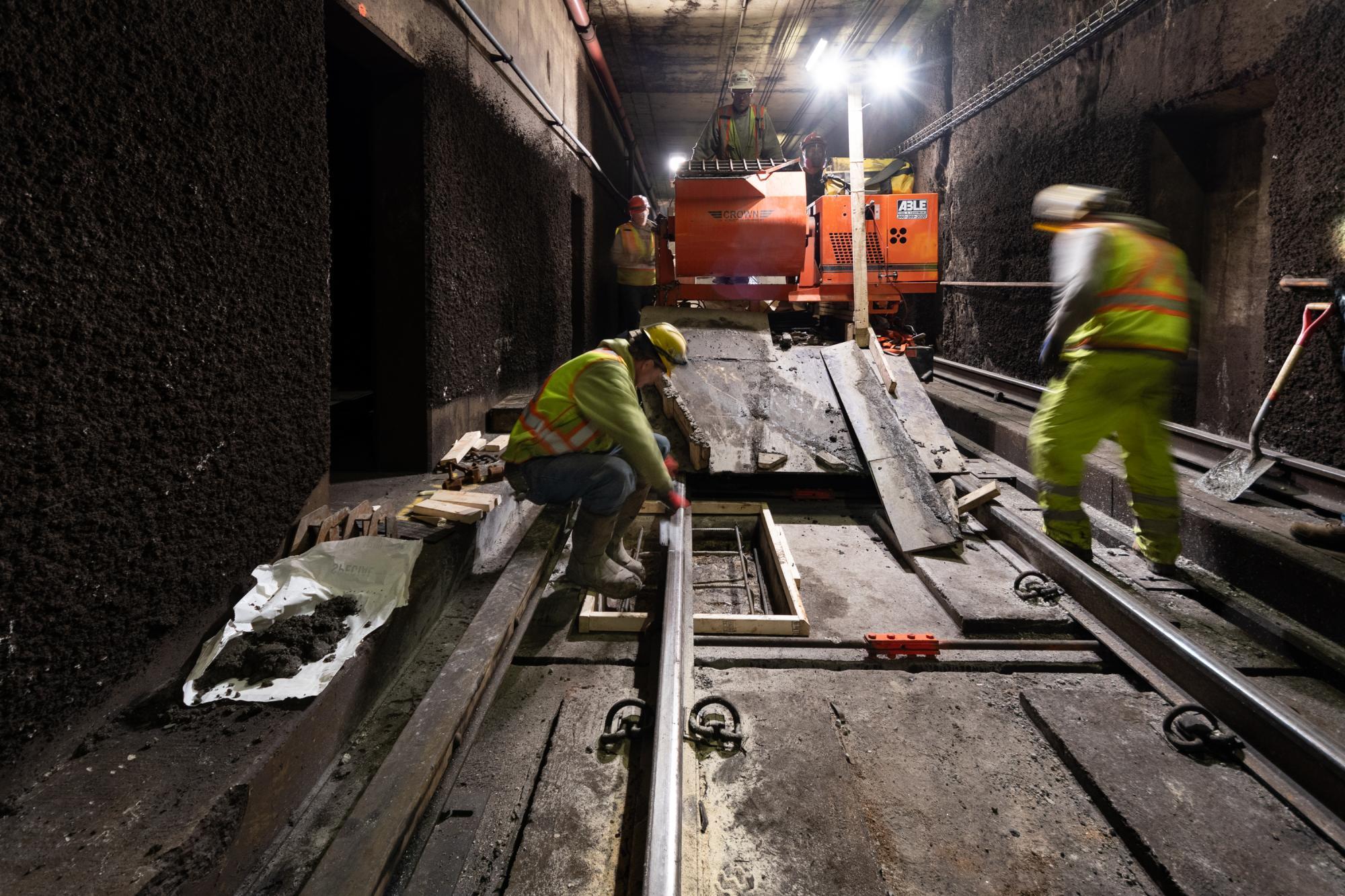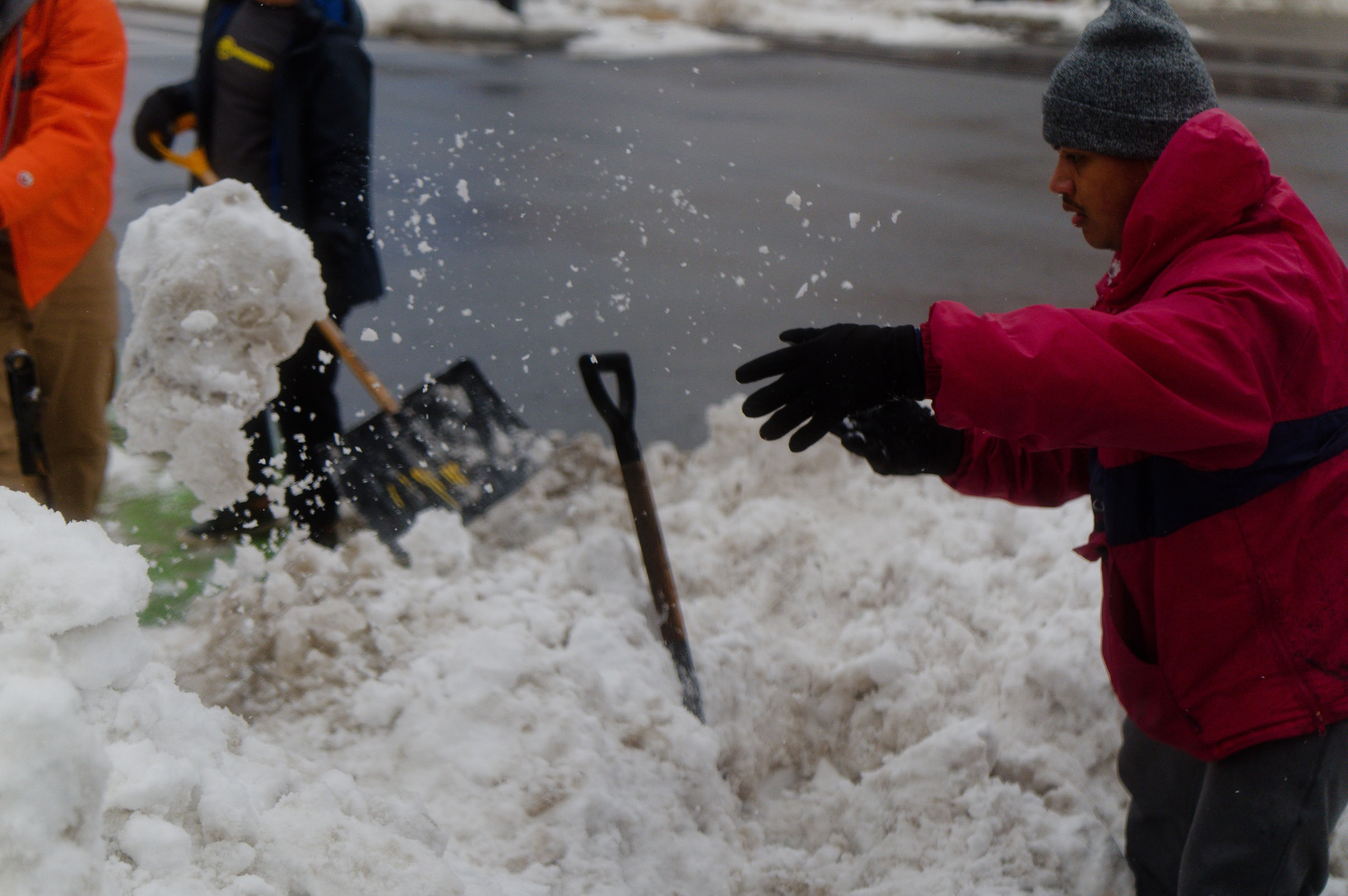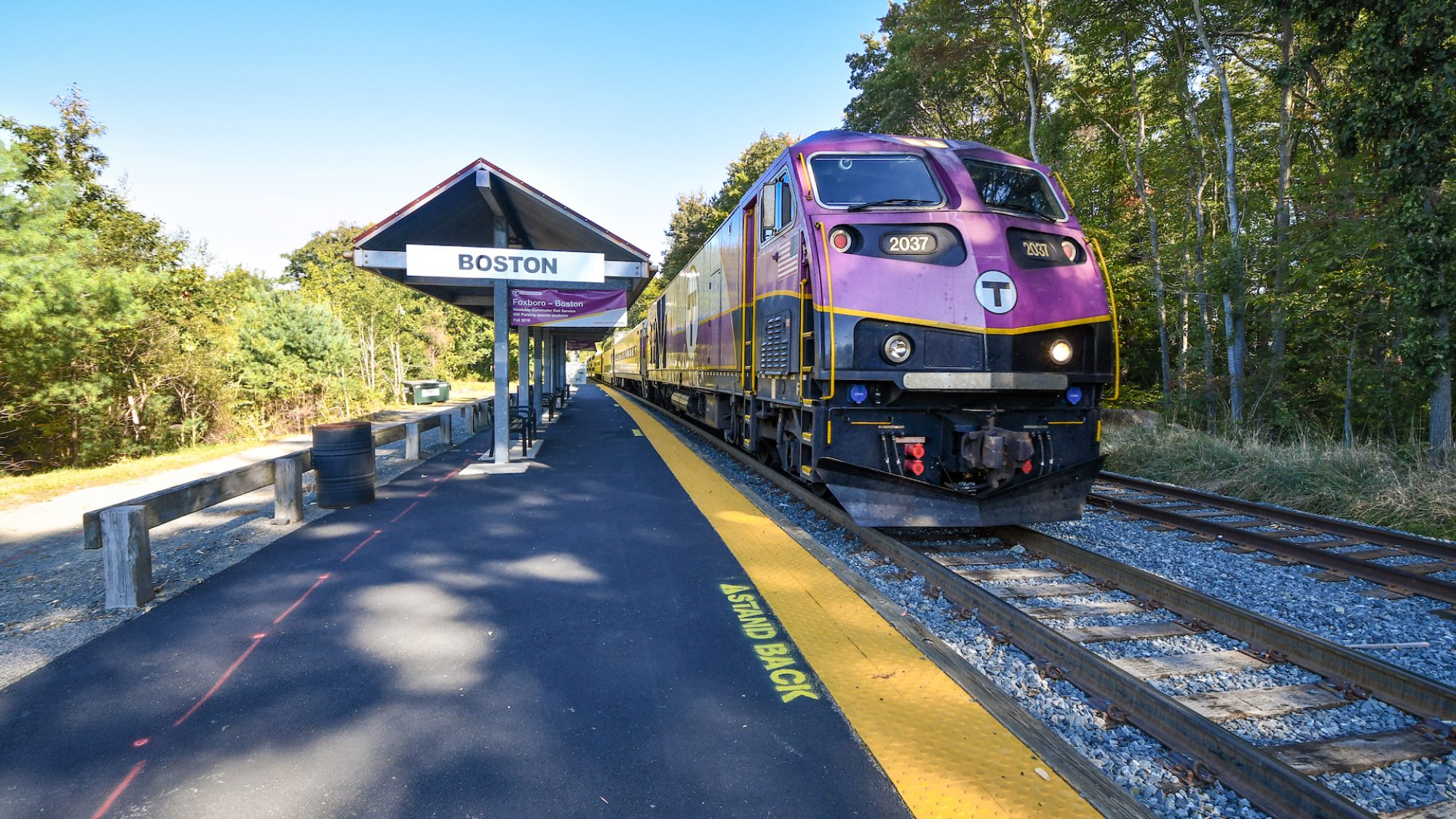On Thursday afternoon, MBTA General Manager Phillip Eng hosted a press conference to discuss the findings of two internal audits that scrutinized the T's track maintenance and inspection procedures – the issues that prompted the T to implement an emergency 25 mph speed limit across the entire subway network in March.
"Both reports underscored that track inspection functions – both internal and contracted services – lacked a formal standard operating procedure, track geometry inspection standards required upgrades, (and that there are) additional track department leadership needs, for sufficient staffing at all levels, and succession planning," said MBTA General Manager Phillip Eng in a press conference at 10 Park Plaza on Thursday afternoon. "Many of these issues around antiquated practices and undefined roles were also highlighted in the FTA Safety Management Inspection back in September 2022."
In March, Eng's predecessor, Jeff Gonneville, abruptly announced a 10 to 25 mph speed limit across the entire MBTA rapid transit network after the agency discovered inconsistencies in its documentation of track safety issues, inspections, and repairs.
"We did not have confidence in whether the documentation was there, or that the documentation that was available supported that these (track) defects had been mitigated," Gonneville told reporters at the time.
In response, the T commissioned two audits of its track maintenance division.
An independent consultant, Carlson Transport Consulting, conducted one audit; the MBTA's own safety department conducted another.
"The issues that resulted in the March systemwide slowdown, when I started a few months ago I could see them myself," said Eng, who joined the agency in April. "As a public servant for 40 years, having been with agencies with similar challenges, I’ve seen these issues before… when you hear about the lack of information, the lack of documentation, it’s not a one- or two-person issue, but it is a systemic one. These reports confirm that."
The MBTA has published additional details on the audits' findings on its website.
Eng acknowledged that the findings were "difficult to hear," but he also stressed that the agency is focused on fixing these problems.
"Our focus moving forward is squarely on implementing solutions, expanding maintenance staffing and implementing more rigorous training standards, and upgrading antiquated processes and documentation practices to meet modern industry practices and standards," said Eng.






